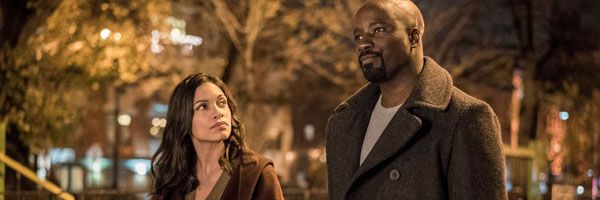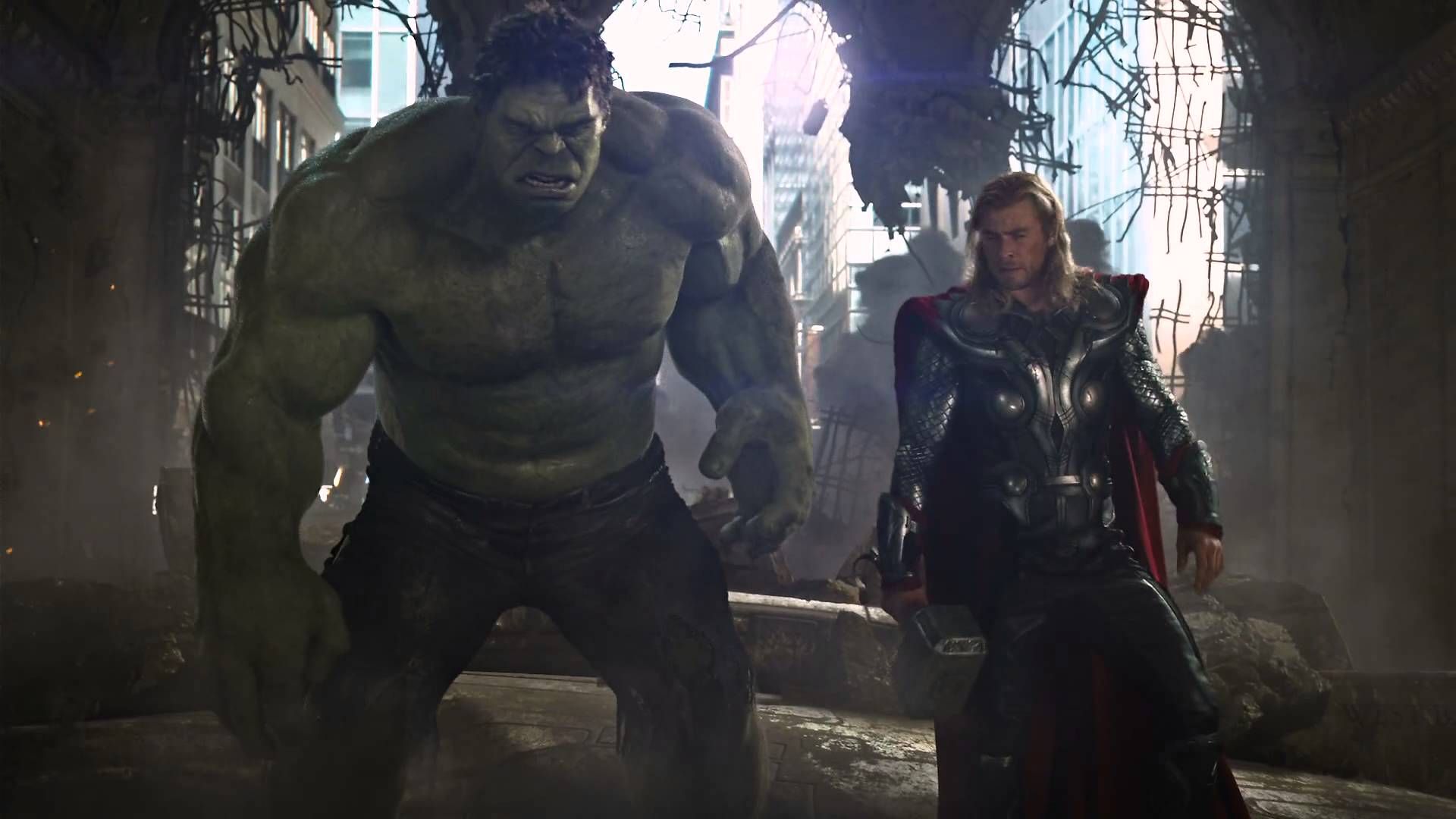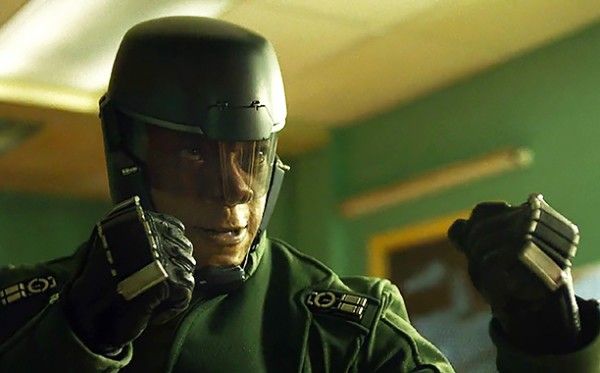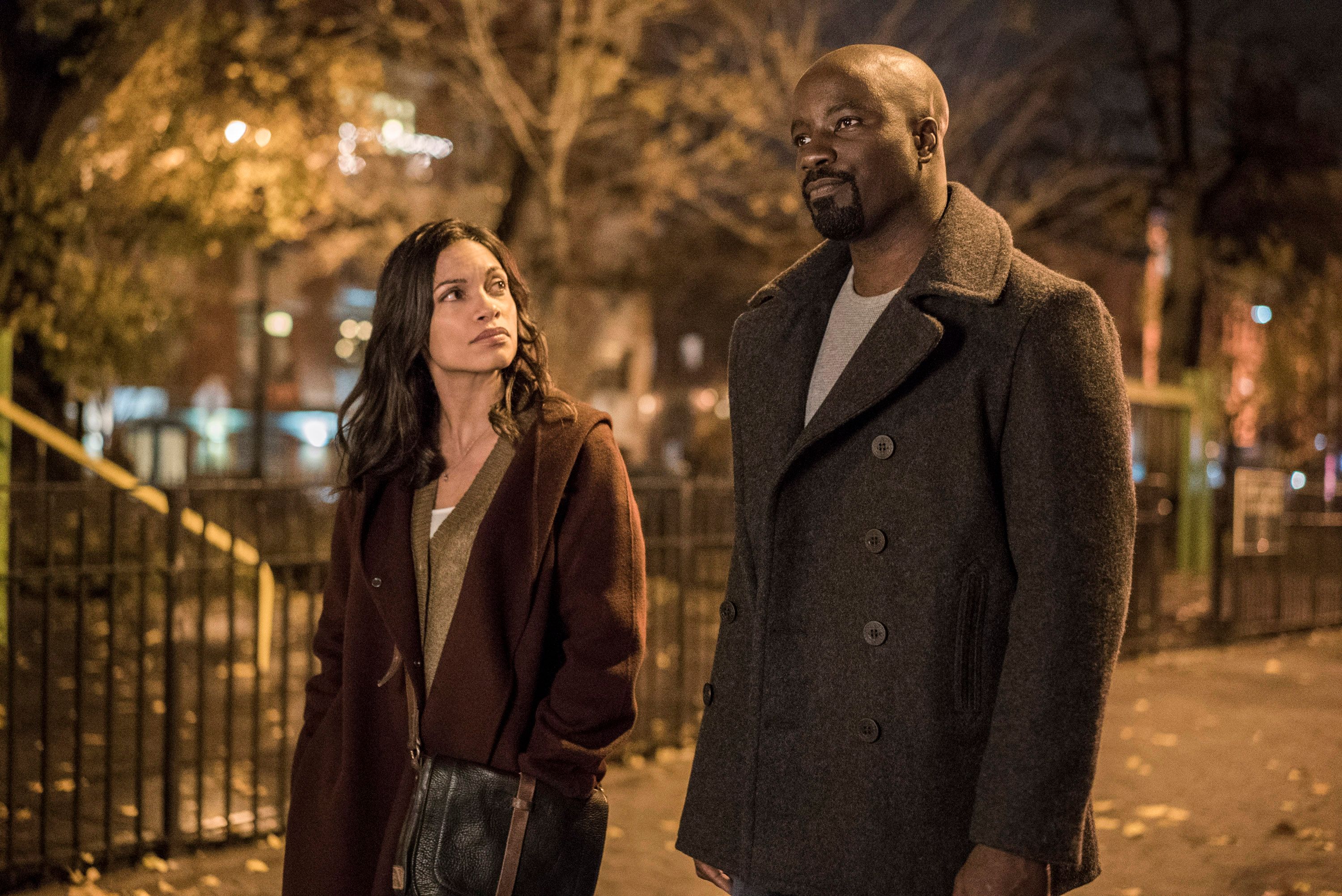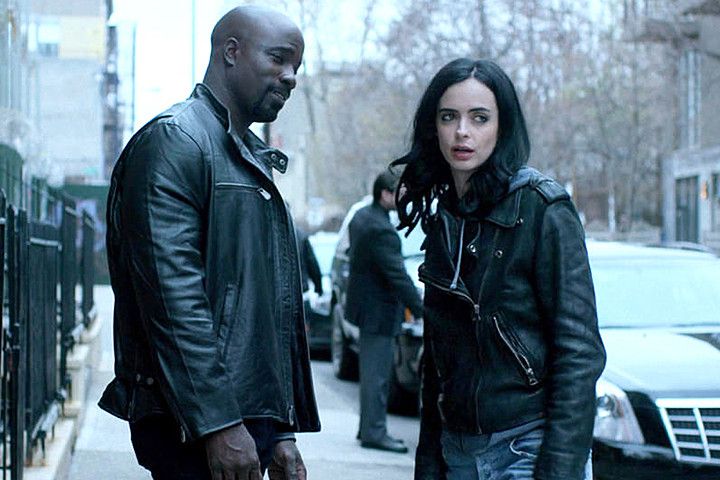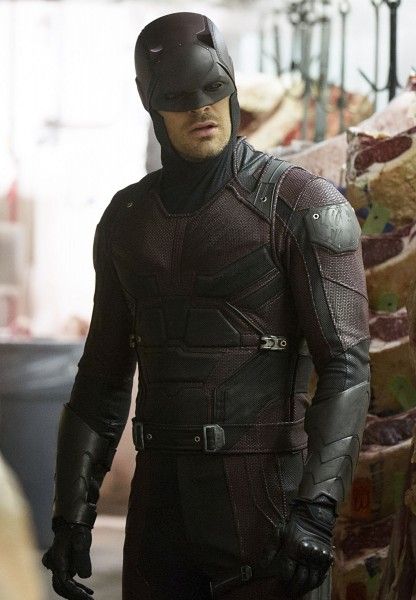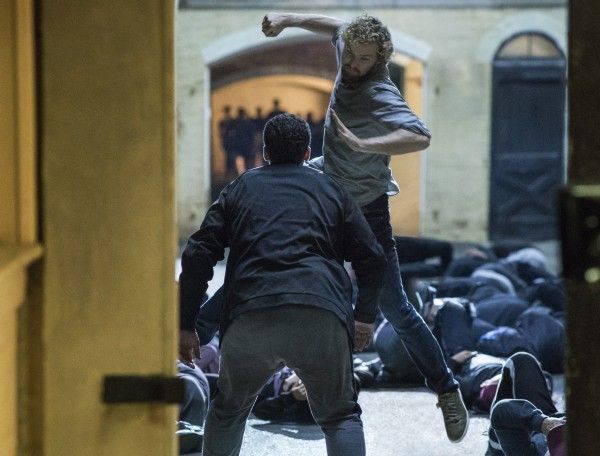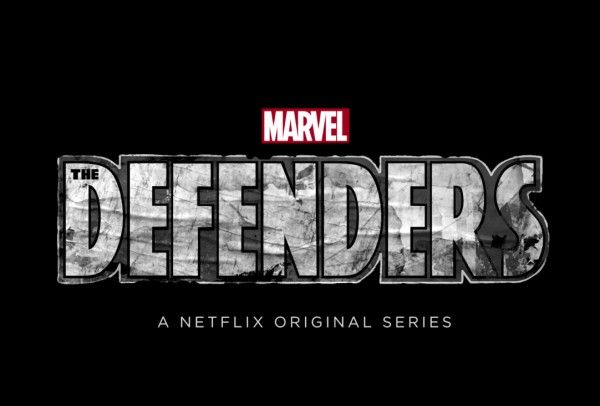Most would agree that the Marvel Cinematic Universe is an amazing accomplishment. Creating a universe that not only runs throughout 13 movies, but concurrently with a handful of television series (at present, with more coming down the pike), is staggering. With the Luke Cage series on Netflix dropping to resounding acclaim to start before fading as it progressed, we had to ask ourselves if all is truly well in the Mouse House’s superhero world when it comes to linking these stories together in a tidy package. Of all the television series currently on the airwaves, Agents of S.H.I.E.L.D., though not a Netflix production, is the one that most heavily relies on the events of the Marvel movies to juice their seasons up for viewers, presenting new avenues of storytelling with story elements like the “Sokovia Accords” from Captain America: Civil War being added into the mix. The Netflix series manage to exist as their own organisms, briefly mentioning what’s happened in the world of Captain America and crew, mostly using the Avengers’ first outing as their springboard. With this being said, is there room for improvement when it comes to tying everything together, should the shows function further away from the events of the films or should they be brought closer?
The Marvel Universe Connection
Positives:
The strongest aspect of Netflix’s superhero series relies on the large Marvel Universe foundation. The impetus for Daredevil existing was an offshoot of the events of the first Avengers movie, wherein Hell’s Kitchen suffered devastating financial setbacks due to the attack of the Chitauri. In the 70s, during Daredevil’s comic book run, Hell’s Kitchen wasn’t the same place it was today. Economic disparity and decay were more widespread than the uptick of all Manhattan real estate we see in the present. By latching onto the idea of the city taking heavy hits from an alien attack, it allows for Wilson Fisk, the Kingpin, and the other mob factions that Daredevil combats in his two seasons to emerge. Granted, were the series not tied into the MCU, another avenue could have been taken, but truly did work so well. While there’s little chance that Matt Murdock will be actually meeting the Avengers face to face in his own series (our best bet at this point is in the upcoming massive Infinity War, if at all), the series did a good job here of taking advantage of the universe itself.
Perhaps the strongest example of tying into the links of the MCU were to be found in Jessica Jones, specifically when she is hired by a woman named Audrey Eastman to supposedly check up on her husband’s infidelity. As Jessica finds more and more evidence on the case, she realizes she’s been placed into a trap, and a gun trained on her by Audrey and her husband, who were looking to murder Jessica simply for having powers. Believing that they were enacting vengeance for the loss of Audrey’s mother during the final fight in the Avengers, Jessica spins into a rage, incapacitating Eastman and destroying the apartment they were in. Jessica despised the implication, and wasn’t keen on being lumped in with other superpowered folks as a “freak.” This sort of discrimination is much more common over in the X-Men side of the Marvel Universe, but here the MCU touches upon the prejudices against powered individuals. This storyline simply wouldn’t have been as emotional without the MCU / Avengers tie-in (which also served to enrich that storyline), especially since such a large part of Jessica Jones’ initial season was discovering her place in the world amid her own inner turmoil.
In Luke Cage, the show mostly ties into the events of Iron Man 2 -- most specifically Sam Rockwell’s antagonist character, Justin Hammer. While Hammer himself doesn’t actually appear (he’s still in prison, as shown in the MCU one shot, “All Hail The King”), his technology and ill-gotten gains are a constant in the series. The show manages to use these ties an achilles heel to Cage, presenting weaponry that manages to injure him along the way and even change the landscape of how regular police officers would handle super powered individuals with their new supply of “Judas” bullets. These are all examples of Netflix tilling the soil that was laid by the Marvel Cinematic Universe to great effect, but on the other hand….
Negatives:
I swear, if I have to hear about “the Incident” one more time … For whatever strange reason, the Netflix series have decided that even though they are tied to the events of the movies, they will not be mentioning the Avengers by name. Granted, Captain America and Iron Man get name drops once in a blue moon, but Thor and Hulk are often referred to as “the guy with the hammer” or “the green monster.” Again, I can understand the need for the Netflix series to want to be their own organisms, but it becomes distracting at best and infuriating at worst when characters simply refuse to flat out name the Avengers. At one point during the Luke Cage series, Pops, Cage’s mentor, flat out suggests that Luke join the “guys downtown,” banking on Luke instantly knowing that he’s referencing the current main super team of the MCU. There is surely a better way for the Netflix entries to reference the Avengers and not be so cryptic about it. I am by no means suggesting that the Avengers actually make appearances in the series, but simply acknowledging them more when they have a heavy hand in some of the proceedings -- especially those which lay a solid foundation for why these Netflix shows exist -- would make sense.
Another way that the Netflix shows are being handcuffed to the movies is their unwillingness to really delve deeper into the environment changed by the Avengers and their co-horts. Ultimately, this may not be their job to do, but the world has been fundamentally changed for ordinary people. Men in iron suits and Gods of Thunder roam the skies, and aliens have been proven without a shadow of a doubt to be real. These ideas are rife for exploration in the heroes’ street-level outings, especially as they display their own powers. Exploring the mentality of the common man was done well with Audrey Eastman episode in Jessica Jones, but that was simply scratching the surface. Still, I can understand the need for a fine balance when it comes to creating a unique world for your characters outside of the MCU that barely touch upon that outside universe, I just hope they can keep to that balance. Certainly, you’ll be hard pressed to find anyone who thought Diamondback’s Hammer-supplied power suit did the Luke Cage series any favors.
Within the Netflix Universe
Positives:
Keeping in mind that the Netflix Marvel shows tie into their cinematic brethren, how do they do in reference to one another on television? To be honest, I feel they manage to juggle the interactions between one another quite well, and ultimately better than the MCU at large. Luke Cage originally being introduced as a supporting character in Jessica Jones gave you a brief look into his life, and helped you to understand the character before you were flung into his days in Harlem. Daredevil has so far been acting as the “Iron Man” of the universe, the poster child, introducing the world of Marvel’s New York City to viewers and setting a bar for the rest of the shows to follow. I would compare these initial outings to the original Phase One movies of the MCU, giving each character their own spotlight while intricately weaving an overall narrative that will, hopefully, pay off with The Defenders. If you look at how the movie’s first phase and the Netflix series’ first phase are laid out, they are almost scarily similar in their overall structure.
The strongest part of this comes in the form of Rosario Dawson’s Claire Temple, who has appeared in some form or fashion in each season of the Netflix series, and acts as their version of Clark Gregg’s Agent Coulson, the “bond” that unites these street level heroes. The now former nurse is charismatic, strong, and has great characterization which makes her inclusion seem organic rather than obstructive when it comes to her appearances in Daredevil, Jessica Jones, and Luke Cage so far. Again, in this sense, it’s taking a page from the MCU but manages to improve upon it with a supporting character who is much more present in most of the storylines. Hopefully she manages to dodge the axe that Coulson received in the Avengers’ film!
Negatives:
On the downside, there is always room for improvement. Murdock being referenced in Jessica Jones and Luke Cage as “Oh I know a really good lawyer” from certain characters tended to get a tad grating as time went on and felt shoehorned in (and again, needlessly cryptic). Netflix also missed the opportunity to make mention of Danny Rand, a.k.a. Iron Fist, especially with Luke Cage and Iron Fist having what may possibly be the strongest bromance in the Marvel comics. Aside from Madame Gao and her flunkies in Daredevil, we haven’t had any information about Rand from any of the Netflix series so far. Considering how far out Iron Fist is (he gets his powers from punching a dragon in the heart!), it’s surprising that they didn’t feel the need to ease us into his world with some sort of hint or character introduction. Luke Cage may not have been the place for that, but the supernatural aspects of Daredevil’s second season certainly gave precedence for it to happen.
What Does This Mean for The Defenders?
With the pairing of Daredevil, Jessica Jones, Luke Cage, and Iron Fist on the way for 2017, the formation of The Defenders lays out their importance to the Marvel Universe as the premiere street team of heroes. In this case, I hope that the ties to the MCU (and fir that matter the Avengers), are rarely referenced if at all. The continuity of the Netflix series is all they need to bring up, as it will be five seasons deep by then (taking into account Daredevil’s two seasons). The Defenders seems like it will act as a grandiose conclusion to the first “phase” of the Marvel Netflix television shows, and the spotlight needs to be placed squarely on them in the same vein as the Avengers during their first film. That is: play on the characters’ pasts and their interactions with one another while focusing on the supernatural aspects of the Hand as the overall threat.
Rumors have been swirling with regards to The Defenders potentially having a lower episode count, which I would be all for. Stranger Things taught us that the magic number for a Netflix television series may be around 8, as I think a unanimous negative to the Marvel series is that their episode count tends to run a bit too long at 13. Luke Cage certainly could have gone without the focus on Diamondback and the Georgia trip, which ate up a number of episodes, but Jessica Jones and Daredevil have suffered from mid-season lags as well. The Marvel Cinematic Universe’s plan feels rock solid, but when it comes to its TV series in particular, it could definitely use a few tweaks to both explore its world more fully, and to keep viewers engaged and invested in not only what’s to come with these heroes, but to make their stories compelling right here and now.

